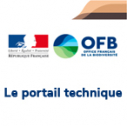Integrating biodiversity into planning documents
From 17 June 2022, the French Biodiversity Agency (OFB) and the Centre National de Formation des Personnels Territoriaux- National Training Centre serving agents of local public services, (CNFPT) are offering a series of webinars on the integration of biodiversity in planning documents. We met with Hassan Souheil and Kathleen Monod who participated in the development of these webinars.
What is the reason behind these seminars ?
Kathleen Monod: The integration of biodiversity in local planning has been reinforced by successive laws over the past twenty years, which has contributed to transforming urban planning documents into real local projects. They have a major role to play in the spatial integration of the challenges of preserving and restoring ecological continuities (reservoirs and corridors), implementing the "avoid-reduce-compensate" scheme, land-use sobriety, nature-based solutions for adapting to climate change adaptation, etc.
However, this role is not always easy to handle and this is why we thought it would be interesting to continue the discussions initiated on this subject during the seminar of 8 March 2022 "Biodiversity in my mandate as an elected representative ". This is the purpose of this series of four webinars co-organised with the CNFPT, which will be an opportunity to combine presentations by experts and testimonies from local authorities or regional biodiversity agencies
Why did you partner with the CNFPT ?
Hassan Souheil : The OFB and the CNFPT have been working together for about fifteen years and the last agreement was signed on 5th December 2020. This collaboration has been concretely translated into a common training offer, co-piloted events and shared training resources. It is within this framework that we are co-organising this cycle of webinars.
Several areas of the ecological and energy transition are concerned by this collaboration: the monitoring of natural areas and environmental policing, environmental education, the development of knowledge, resources, uses and ecosystem services related to biodiversity, the balanced and sustainable management of water or the consideration of biodiversity in agro-ecology and network infrastructures (roads, water and sanitation) are also part of it.
Are these webinars only for local authorities ?
Kathleen Monod : These webinars are mainly, but not exclusively, intended for local authority representatives. They may also be of interest to some of the partners with whom the OFB works within the framework of the European Life "Biodiversity in territories and policies", such as State operators (ADEME, ANCT, CEREMA, etc.), consulting firms, researchers, national associations representing elected officials or other associative structures.
Are further webinar cycles in preparation?
Kathleen Monod : Yes, for example, the one on the integration of biodiversity in urban development projects. This will complement the one on local planning in order to address the two scales of local development. Another will be organised in the autumn to prepare the 2023 edition of the "French capital of biodiversity" competition. The theme of which will be trees and forests. Then another one on nature-based adaptation solutions jointly organised by the EU Life ARTISAN project teams. The programme is part of a common vision of CNFPT / OFB to take into consideration the challenges of the ecological transition in public and sectoral policies carried out by local authorities. , and other webinars will follow in 2023...




